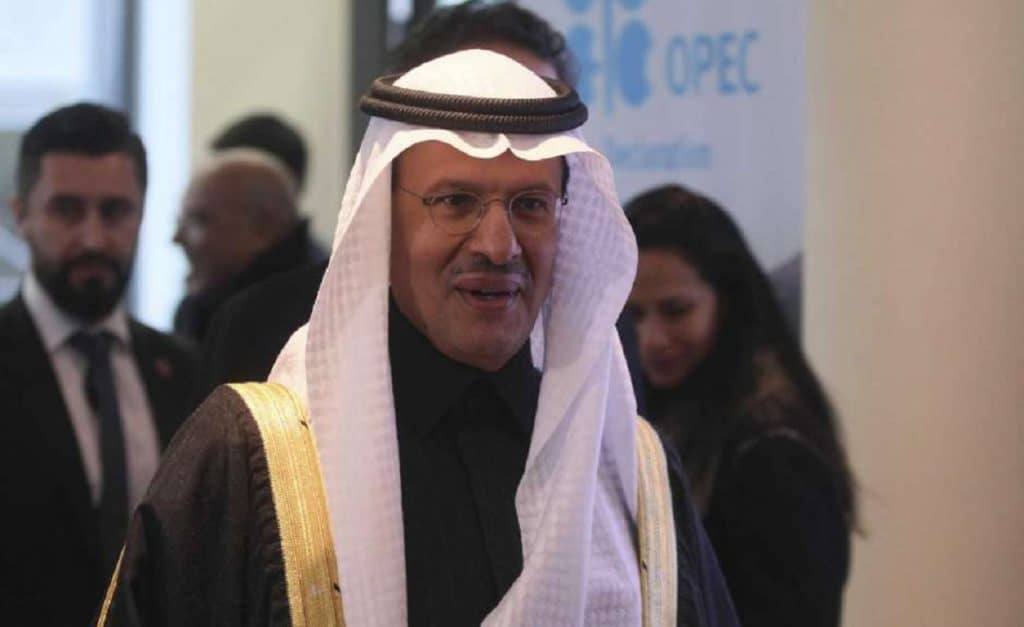By Denis Korkodinov
On March 8, 2020, Saudi Arabia decided to increase oil production to more than ten million barrels per day, thereby causing the largest black gold price collapse in 30 years. This decision was due to the refusal of Moscow to conclude an agreement with OPEC +.
Against the backdrop of the economic crisis associated with the spread of coronavirus, the Riyadh demarche may provoke the collapse of the global economy. According to some analysts, such actions by the Saudi monarchy fully fit into the strategy of “economic killing”, primarily of Russia, and is aimed at depleting its National Welfare Fund, from which it is planned to compensate for the economic costs of the state. The purpose of this is to deprive Russian President Vladimir Putin of the opportunity to implement the initiated set of internal reforms, for which the state simply does not have any money left.
Experts believe that in fact, oil production in Saudi Arabia in April 2020 may increase to 11.8 million barrels per day, which will further aggravate the economic situation of many countries dependent on oil supplies. The main reason for such pessimistic forecasts is that Riyadh’s production capacities allow it to produce oil in the amount of 12 million barrels daily, and therefore, the statement by the Minister of Energy of Saudi Arabia, Prince Abdulaziz bin Salman, to limit oil production to 10 million barrels per day be skeptical.
It can be concluded that Riyadh has actually declared war on the pricing policy of the entire world community. However, in light of the fact that the increase in oil production was caused by the Russian refusal to conclude a deal with OPEC +, it is logical to assume that this price war declared by the Saudis was designed solely to cause economic damage to Russia.
Russian pro-government economists argue that Moscow is able to adapt to current non-oil prices over the next 6-10 years at the expense of the State National Wealth Fund, which currently totals $ 150 billion. However, it is worth paying attention to that, shortly before “Black Sunday” on March 8, 2020, Russian President Vladimir Putin, having initiated constitutional reform and launched a large-scale economic program in the country regarding support for large families, pensioners and budget workers, officially stated that the data reforms will be implemented through the use of funds from the National Wealth Fund.
Proceeding from this, in the conditions of the economic collapse provoked by Riyadh, Moscow found itself in a very delicate situation, since it is obvious that the National Welfare Fund is not able to cope with the simultaneous fulfillment of two laborious tasks at once: compensating oil prices and implementing economic reforms. However, if economic reforms can be postponed indefinitely, then overcoming the consequences of the global economic crisis will require Moscow to quickly use its financial reserves.
In addition, it is worth paying attention to the fact that the forecasts of Russian economists, who are planning to use the National Wealth Fund for 6-10 years to compensate for the economic costs associated with oil production, are very doubtful. So, an integral point of this forecast is the continuing oil price of $ 30 per barrel. Nevertheless, if the price of “black gold” drops to $ 20, which is now actively sought by Saudi Arabia, Russia’s financial reserves, according to analysts, will be depleted within 3-5 years, after which a new economic shock is expected to neutralize the consequences of which Moscow will no longer have free funds, since the National Welfare Fund will be completely exhausted.
In any case, it is very erroneous to say that Moscow will agree to lower the price of oil to $ 30 per barrel, as this will lead to a significant deficit in the Russian budget and a devaluation of the national currency.
Moscow, which relies heavily on its financial reserves, can suffer greatly from the costs that its economy will face at a time when the world is undergoing a recession due to the spread of coronavirus.
Russia’s National Wealth Fund is only $ 150 billion, while Saudi Arabia’s financial reserves are estimated at half a trillion dollars. Therefore, the desire of Riyadh to put pressure on Moscow to resume the negotiation process is likely to have a positive outcome, since Russia is not interested in exposing its own economy to death as a result of sharp fluctuations in black gold prices.
In other words, Riyadh has much more economic opportunities than Moscow to cope with the negative effects of the crisis, since it has significantly more financial reserves and Saudis closely linked to Washington’s policy of isolating Russia in the international arena.
Russian Energy Minister Alexander Novak, foreseeing a collapse of the Russian economy, speaking to reporters on March 10, 2020, expressed his intention to hold another meeting with OPEC + representatives in order to achieve stability in the oil market. However, according to the Saudis, OPEC + does not plan any meetings, at least until July 2020. As a result of Moscow’s desire to adjust oil prices, it is unlikely to succeed. For at least the next 4 months, the Russian economy will experience a state of “free fall” until a new deal is concluded between Moscow and OPEC +.
(The views expressed in this article belong only to the author and do not necessarily reflect the views of World Geostrategic Insights).







